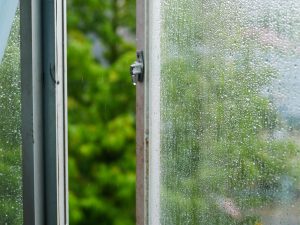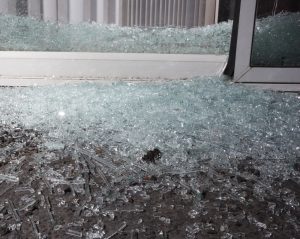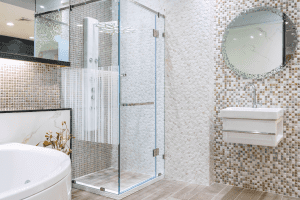It's time to enhance your knowledge about the anatomy of a door. In particular, we'll be talking about its strike side. Where is it, and what can we find there? We've asked the help of our door experts to help us shed light on this topic.
The strike side of the door is opposite the hinged side. You will find the strike plates on the door jamb aligned to the door knob and deadbolt. These are where the latch and bolt sit to ensure that your door stays closed and enhance its security for your protection. They also protect your door frame from wear and tear.
Hang on so we can tell you more about the strike side of the door and the important purpose that it serves in keeping your home secure. We'll also tell you if strike plates come in different sizes, if they come together with your door knob set, and how you can enlarge the hole in the strike plate.
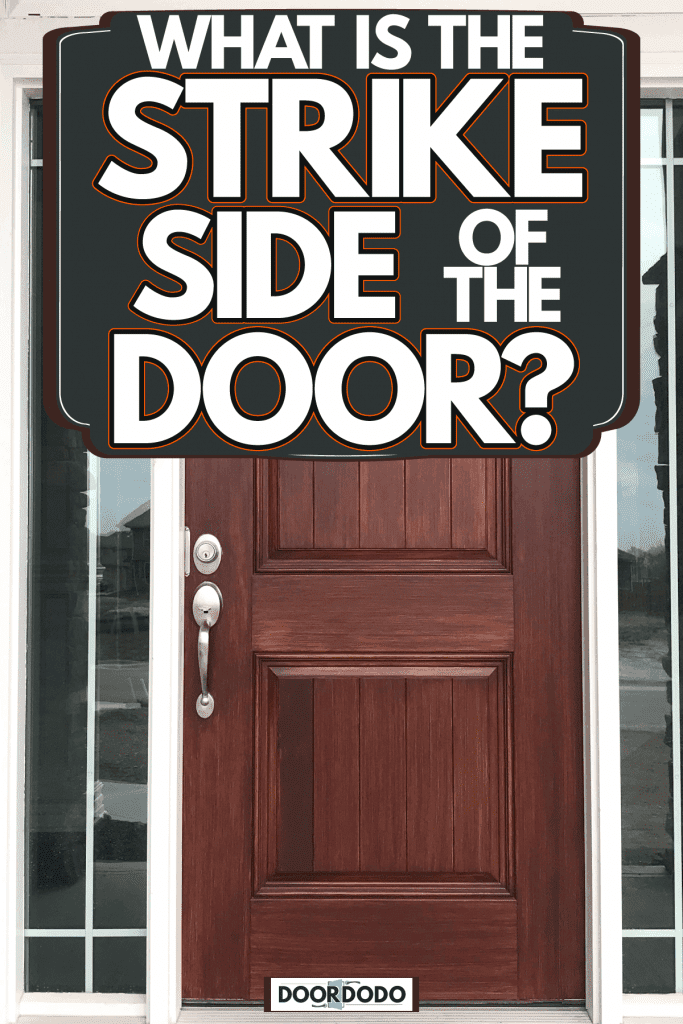
Where is the Strike Plate on a Door?
It is interesting to know more about the different parts of a door, so you'll have a better appreciation of what each component does to keep you safe and secure inside your home.
The strike plate is located on the door jamb. It means it's along with the door frame and not on your door panel.
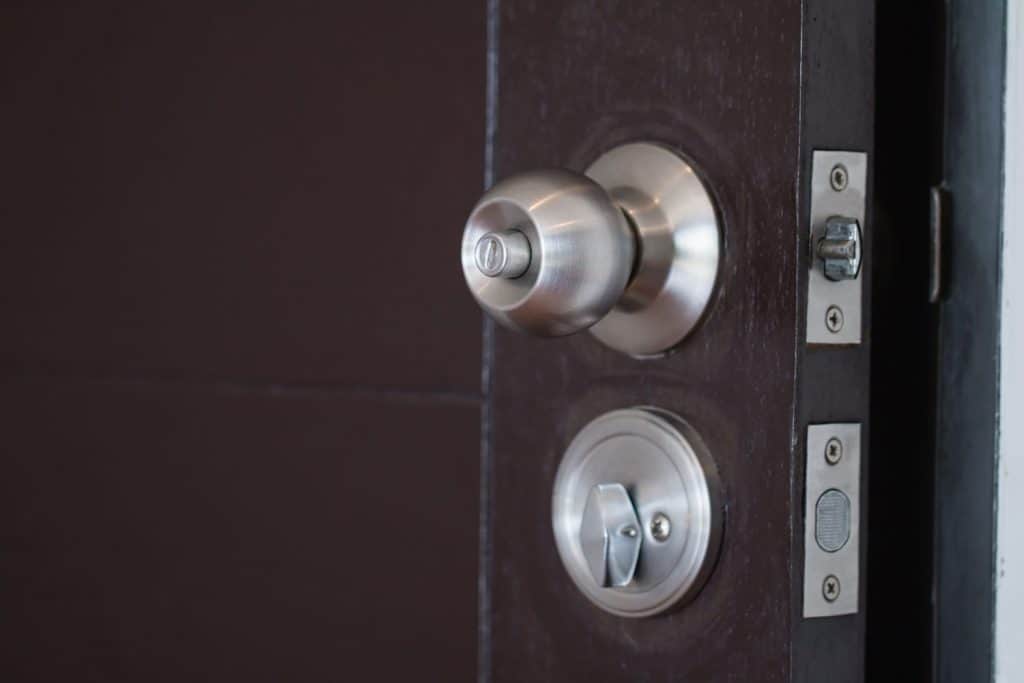
It is the thin metal plate that's screwed on the door frame. There's a hole inside that conforms to the shape of the bolt or latch because it is where they will be inserted into when you close and lock your door.
This is why the strike plate should be positioned right next to the door knob and deadbolt. Its alignment is important to serve its purpose.
For your reference, the strike plate, together with the door knob and deadbolt, form the strike side of the door. It is located opposite the hinge side so that your door will work efficiently.
What is the Purpose of a Strike Plate?
As mentioned above, the position of the strike plate is essential to its purpose. There are three main functions of this part of the door.
Anchor
The hole in the strike plate is where the latch and bolt sit. They should extend deep into the hole when the door is closed. This way, the door will be properly anchored to the frame, and it will stay closed until you turn the locks.
Reinforcement
This is true, especially for deadbolt locks. It reinforces the security of your home. When the deadbolt is inside the hole, your door won't easily be broken into.
This is made possible by the deep hole that extends from the strike plate into the door frame. It is usually 1" deep.
Intruders and burglars will have a hard time getting inside your home because it can't be pushed open from their side. They would need the right key to be able to remove the deadbolt from the hole.
This also highlights the fact that you should add a deadbolt for your home's security and invest in good-quality materials to withstand the force of those with ill intentions.
Protection
The strike plate protects the door jamb from friction caused by the frequent opening, closing, and locking of the door. This will prevent rapid wear and tear as this is one of the door's most used and abused portions.
You see, the strike plate is more than just a piece of metal on your door frame. It anchors your door and keeps it closed, reinforces your security from those with criminal minds, and protects the door frame from getting damaged easily.
Do Door Strike Plates Come in Different Sizes?
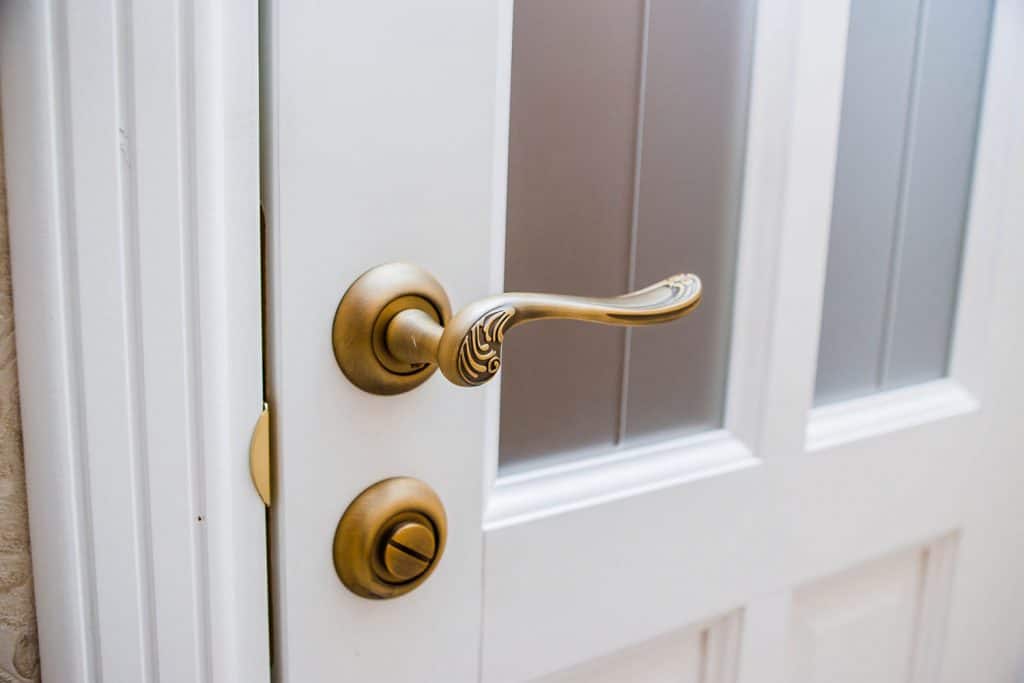
Because of the essential function that strike plates serve within a door, it is important to ensure that their fit is perfect.
When shopping for this door hardware, you might be shocked to find out that there are different kinds and finishes of strike plates. They also come in different sizes. Their size would depend on their particular type.
Here are the different types of strike plates for your reference.
Full Lip Strike
This is the most common type of strike plate. It has a width of 0.875 inches as measured from the hole of the screw to the edge of the plate. There are two subtypes of full lip strike - the round corner and square strike plate.
Extended Lip Strike
This is used for wider doors since their plate is also wider. It is available in different sizes, from 1 1/2" to 4'.
Click this link to find this on Amazon.
T-Strike
This is a T-shaped plate. Some doors have been prepped for this kind of strike plate. Its size is 1-1/8" x 2-3/4".
Circular Strike
As the name implies, it is a round-shaped strike plate. You need this when your door has been prepped for this type. It has a diameter of 1 3/4 inches.
Find this strike plate on Amazon.
Deadbolt Strike
This is used specifically for a deadbolt lock. It doesn't come with a lip since the bolt strikes the plate differently. Its dimensions are 0.63" x 1.12" x 2.75".
When buying strike plates, check the type that's compatible with your door as well as its size so you can be sure that the latch and bolt can fit securely.
Do Door Knobs Come with Strike Plates?
If you're buying a door knob, the set usually includes the strike plate, latch mechanism, mounting screws, and of course, both sides of the knobs. This makes it easier for you to install the knobs properly and make sure that they are ready for use right away.
But in case your strike plate gets damaged, you can buy these parts from your local hardware separately.
How Do you Enlarge a Strike Plate Hole?
Your strike plate hole must be deep enough so that it can provide an adequate anchor to the latch or deadbolt. If it lacks depth, the bolt won't be able to extend fully, and your door won't stay closed.
Good thing it is relatively easy to adjust the size of the hole. Here's what you need to do.
Tools:
- Screwdriver
- Chisel
- Ruler
Procedure:
- Remove the strike plate by unscrewing it from the door jamb.
- Using your chisel, deepen the hole by 1/4".
- Test if the bolt can be fully extended into the hole.
- If not, chisel another 1/4" into the hole.
- Stop when the deadbolt can finally be extended all the way into the hole.
- Reattach the strike plate by screwing it back into place.
- Test your deadbolt lock again to be sure that the plate doesn't get in the way.
That's it! Simple, right? Now your lock can work properly.
Final Thoughts
The strike side of the door serves as your door's protection, anchor, and reinforcement. Make sure that you've got your strike plates in the right size and type so that they can hold your latch and bolt in place effectively.
If you're interested to know how to fix different door issues, you can visit these posts:






